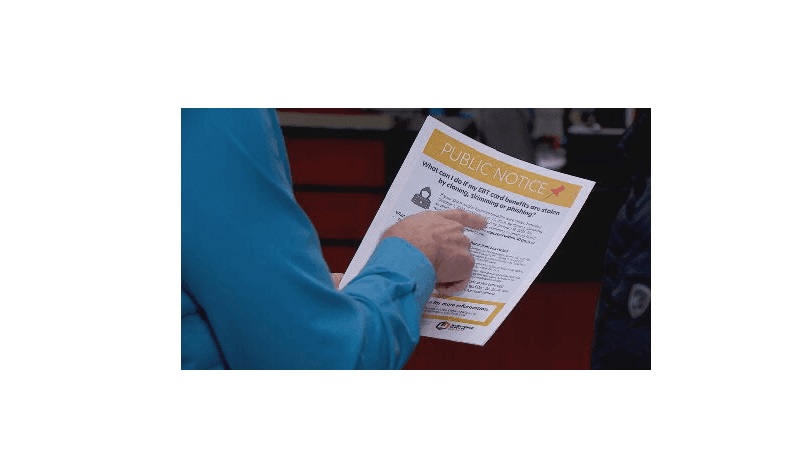Ogden, UT — As the number of thefts involving Supplemental Nutrition Assistance Program (SNAP) benefits continues to rise, both state and federal agencies are stepping up efforts to improve security measures. Many SNAP recipients, including Barton Gonzales, are voicing concerns about the safety of their benefits amid a growing trend of online fraud.
Gonzales, a Utah resident, recently discovered his SNAP account had been emptied following a theft that occurred on his deposit day, despite his being in-state. “Now I’m paranoid every single day I use my card,” said Gonzales, who noted the emotional toll the theft had taken.
When asked about reimbursement for stolen funds, Workforce Services Deputy Director Kevin Burt confirmed that the state’s funding for replacing stolen benefits expired on December 20, leaving many recipients without the ability to recover lost funds. In response, Gonzales expressed continued worries despite being issued a new card and PIN. He stressed that current security measures, including the use of a four-digit PIN, are inadequate. “There’s no reason for a four-digit password, because that’s the easiest thing for somebody to hack,” Gonzales added.
Since January 2023, the Department of Workforce Services in Utah has received over 6,500 claims related to SNAP fraud. A significant portion of these cases involves online crime, where sophisticated techniques such as “data mining” and “algorithm-based guessing” are used to crack account credentials. Muris Prses, Director of Eligibility Services Division, acknowledged that the current system could benefit from improvements but denied any rumors of a data breach or insider leaks.
Prses explained that the majority of fraud incidents can be attributed to emerging criminal tactics, and highlighted that efforts to counteract fraud are underway. “We are currently suspending vendors that we know are committing the fraud,” Prses said. “We are researching various measures, including potential upgrades to the cards themselves, such as adding CHIP or CVV codes. We are also considering expanding the PIN requirements.”
The USDA, which oversees the federal SNAP program, declined an interview but issued a statement to 2News about ongoing efforts to protect low-income Americans who rely on the program. “When benefits are stolen, SNAP participants’ ability to feed their families is threatened,” a USDA spokesperson remarked.
As part of its efforts, the USDA is currently piloting chip and tap card technology in California and Oklahoma, with California already securing state funding to implement this new technology. Additionally, three states are testing mobile payment options for SNAP purchases. The USDA has also awarded nearly $5 million in fraud prevention grants to state agencies and is working on developing enhanced transaction tracking systems. According to the USDA, new regulatory standards for EBT card security are in the works, based on feedback gathered during roundtable discussions with states and other stakeholders.
For Gonzales, however, the solution seems straightforward. “Upgrade the password,” he said. “Make it possible to have a stronger password, and they would be saving millions.” He believes that strengthening security measures, such as allowing more complex passwords, could be a simple yet effective solution to curb fraud.
While significant changes are being considered, Prses noted that new security measures are not expected to be implemented until October, following the update of a vendor contract. Until then, thousands of SNAP recipients like Gonzales remain concerned about the vulnerability of their benefits and the steps taken to protect them from fraud.
As agencies continue to explore solutions, it remains clear that stronger, more immediate actions are needed to secure the benefits of millions of low-income Americans who depend on the program to feed their families.

